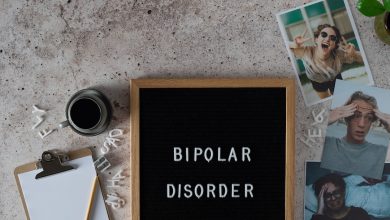
Human cognitive health is one of the concerns that has become very important these days in the onslaught of urban life and increasing cases of mental diseases.
Every brain changes during life and with age, and a person’s mental function changes. Mental decline, which has become a common problem these days, is one of the most frightening consequences of aging; But in any case, these cognitive disorders happen, and what can be done to reverse them is to improve the functioning of our brain with solutions and keep it as young as possible.
Move your body.
The best advice you can give to keep your brain healthy and young is to do aerobic exercise—a combination of aerobic exercise, and weight training will be the best choice.
Various studies show that people who include these sports in their daily schedule have achieved the best results for keeping their brains healthy and young.
You should know that as our age increases, brain cells or neurons gradually lose their tree-like branch connections between themselves, and in this way, the weight of our brain decreases over time. These connections, called synapses, are essential for our thinking process.
Perhaps the most exciting brain research today shows that exercise can prevent some types of dementia; Exercising may even restore memory.
Exercise also causes new nerve cells to grow and increase connections (synapses) between brain cells. Exercise lowers blood pressure, improves cholesterol levels, helps balance blood sugar, and reduces stress, all of which can help your brain and heart.
Arthur Kramer of the University of Illinois considered one of the leading researchers in exercise and brain health, has conducted about 12 research in this area in the past years. His research, which was conducted under the title of “reducing the loss of brain tissues in the aging period through aerobic exercises,” has two crucial findings; People who have fit bodies have healthier and more active brains, and people who are obese and have reached a good body shape over time have improved their brain health and activity. The latter finding is significant because it shows that exercising can make you smarter, and this can happen at any age, not just young people, according to Kramer’s research.
Feed your brain.
Another way to keep your brain young is related to your stomach. Most of us probably know about the effect of antioxidants in fighting cancer. Eating foods that contain these molecules and neutralize harmful free radicals may also benefit your brain; Free radicals may destroy your brain’s nerve cells. Many colorful fruits and vegetables contain antioxidants, as do some beans, whole grains, nuts, and spices.
Of course, the most important issue is the body’s overall nutrition. Along with an excellent daily exercise routine, you should eat right to avoid diseases like high blood pressure, type 2 diabetes, obesity, and high cholesterol.
The exact weight that puts pressure on our legs to climb the stairs also puts pressure on our brains when solving problems quickly. According to research, the best foods you can eat to help your brain are the same foods you should eat for a healthy body. For example, people who follow a Mediterranean diet emphasizing fruits, vegetables, fish, nuts, unsaturated oils (such as olive oil), and plant sources of protein are less likely to develop cognitive impairment and dementia.
Use your brain.
We’re sorry to say this, but our brains naturally start to slow down around the age of thirty (yes, thirty). It was thought that nothing could be done about this, but today we know that people of any age can train their brains to be faster and younger.
“Your brain is a learning machine,” says Dr. Michael Merznick, a neuroscientist at the University of California, San Francisco. By giving the brain the right tools, we can train our brain to function as it did when it was younger. All the brain needs to do this is specific exercises; Exercises for the mind.
In this context, Dr. Merznik has created a computer-based training regime to speed up brain information processing called BrainHQ. Since most of the data we receive comes from speaking, his brain fitness program designed around hearing and language will improve your speed and accuracy.
The app asks you to recognize sounds and increase speed during this period. As Merznick says, the program is like a tennis coach who throws balls at you faster and faster over time to challenge you. Finally, even though you started very slowly at the beginning, you will become very fluent and fast at the end of the course.
The research of Japanese game doctors also inspires Nintendo (a Japanese company that makes consoles and computer games) called “brain age, train your brain for a few minutes a day.” More than two million copies of this game have been sold in Japan. Of course, no software for treating cognitive disorders has been approved by the US Food and Drug Administration (FDA) yet, but some studies suggest that programs such as Dr. Merznik’s program or other brain-related games may improve memory or even reduce the risk of decline.
The biggest finding in brain research in the last ten years is that the brain is highly adaptable at any age. If you ask your brain to learn something, it will learn and may even do it faster.
Finally, to keep your brain young and flexible, you can engage in one of the million activities that challenge and excite your brain. Playing ping pong, completing a puzzle, learning a new language, participating in an accordion class, making a cardboard airplane, making different origami shapes, and re-learning math calculations are some options that can be included in your plan to use your mind and brain more.
Anything that increases your focus and gives you a reward and pleasure for doing it will direct your brain toward learning.
Stay calm to keep your brain young.
As important as it is to challenge your brain, staying calm is also important. Traumatic stress is terrible for your brain cells. Stress can disrupt cognitive processes such as learning and memory and thus lower the quality of human life—people who are anxious, depressed, sleep-deprived, or tired score low on cognitive function tests.
For example, a part of the brain called the hippocampus, which is the central place of memory formation, can be severely weakened by damage caused by chronic stress. Of course, just as physical exercise is always considered an excellent anti-stress, quieter activity such as yoga and meditation can also work in the same direction and be helpful. So, in addition to thinking about exercising your mind and body, plan for your leisure time and relaxation.
Give your brain a break.
The best example of maintaining mental strength by staying calm is sleep. The next time you’re working on a complex problem, whether solving a mathematical hypothesis or choosing a car for the family, consider sleeping. In a study of video games, researchers found that people who nap between games are twice as likely to solve game challenges as people who stay awake during the game. This theory says that the sleeping brain has a remarkable ability to synthesize complex information.
Laugh a little more.
Humor stimulates the parts of our brain that use the chemical messenger dopamine to make us feel good. Laughter is pleasurable for the brain, maybe even addictive. But can humor make us smarter? We still need more research to answer this question, but preliminary results are encouraging.
An article in this field shows that humor can improve short-term memory. In this study, a comparison was made between people who had seen a funny video and people who sat doing nothing and their memory was tested. People who watched the humorous video scored better on a memory test and had lower cortisol levels (the stress hormone).
Color your life with music.
Your brain enters the space of mental exercise when you play your favorite playlist. Not only does listening to music make you more alert, but it also improves your mood and memory.
One reason to explain this is that music and how each note relates to each other is a form of mathematics; Your brain has to work to understand this structure, especially when you hear a song for the first time.

Create social networks of people for yourself.
Strong social relationships are associated with a reduced risk of dementia, lower blood pressure, and longer life expectancy. Meeting new people, like solving a crossword puzzle, boosts your brain’s executive function.
Mental skills enhanced while meeting new people include improved short-term memory, the ability to regulate distractions, and the ability to maintain focus. How does a 10-minute chat help your brain? Hearing other people’s points of view and trying to put yourself in their shoes will make your mind think in new ways.
Go out.
Nature has a calming effect and can reduce stress, even if it’s as simple as looking out the window. Being outdoors allows your mind to disconnect from the constant data stream and prepare for the rest of the day or week. After this short rest, the brain can reactivate its ability to focus and thus be more creative and capable.
Take a break from your daily routine.
There is nothing wrong with eating the same breakfast daily or going to work from a specific route; Humans are products of habits. But to keep the brain young, it is good to do things unusually, even once a week.
Changing your daily life will increase your brain’s ability to learn new information. Find a new way to cook your favorite food or visit new parts of your city occasionally.
Focus on one thing at a time.
Just because you can watch TV, text, and check social media simultaneously doesn’t mean you’re doing it right. When your brain is bombarded with multiple streams at the same time, it is forced to switch between them all the time. This makes it harder for the brain to manage your concentration and memory and constantly switch from one problem to another. Take it easy on your brain and focus on one thing at a time.
Quit smoking.
Many of the chemicals in cigarettes are toxic to the brain, so it should be no surprise that smoking is linked to dementia. A problem that affects people close to smokers. In general, avoid any tobacco products.
Get help for your mental health.
If you are depressed, you are more likely to experience mental decline and not be able to help the process of keeping your brain young. In addition to feeling powerless and losing interest in the things you love, depression can leave you in a “brain fog,”; When it becomes much more challenging to think, stay focused, and make decisions. If you have any of these symptoms, talk to your doctor about how to treat them.
Having a healthy and young brain is the dream of every human being, and we all want to have a completely healthy mind until the last days of our lives. Genetics is a very influential factor in getting cognitive diseases, but as we reviewed together and research shows, how we live is also very effective in keeping our brain young and delaying mental illnesses. So, it is better to overcome the obstacles of staying young in our brains as much as possible and plan for the old days.
What is the best advice to keep your brain healthy and young?
The best advice to keep your brain healthy and young is to do aerobic exercise. A combination of aerobic exercise and weight training will be the best choice.
How does exercise benefit the brain?
Exercise can prevent some types of dementia and may even restore memory. It also causes new nerve cells to grow and increase connections (synapses) between brain cells. Exercise lowers blood pressure, improves cholesterol levels, helps balance blood sugar, and reduces stress, all of which can help your brain and heart.
What is the effect of antioxidants on the brain?
Eating foods that contain antioxidants, which neutralize harmful free radicals, may benefit your brain. Free radicals may destroy your brain’s nerve cells.
What is the impact of stress on the brain?
Traumatic stress is terrible for your brain cells. Stress can disrupt cognitive processes such as learning and memory and thus lower the quality of human life.
How does sleep affect the brain’s ability to solve complex problems?
The sleeping brain has a remarkable ability to synthesize complex information. People who nap between tasks are twice as likely to solve challenges as people who stay awake.
How does humor affect the brain?
Humor stimulates the parts of our brain that use the chemical messenger dopamine to make us feel good. Laughter is pleasurable for the brain, maybe even addictive. Preliminary research suggests that humor can improve short-term memory.
How does music affect the brain?
Listening to music makes you more alert, improves your mood and memory. One reason to explain this is that music and how each note relates to each other is a form of mathematics; Your brain has to work to understand this structure.
How do social relationships affect the brain?
Strong social relationships are associated with a reduced risk of dementia, lower blood pressure, and longer life expectancy. Meeting new people boosts your brain’s executive function.
What is the effect of smoking on the brain?
Many of the chemicals in cigarettes are toxic to the brain, so it should be no surprise that smoking is linked to dementia.
How does depression affect the brain?
If you are depressed, you are more likely to experience mental decline and not be able to help the process of keeping your brain young. Depression can leave you in a “brain fog,”; When it becomes much more challenging to think, stay focused, and make decisions.







